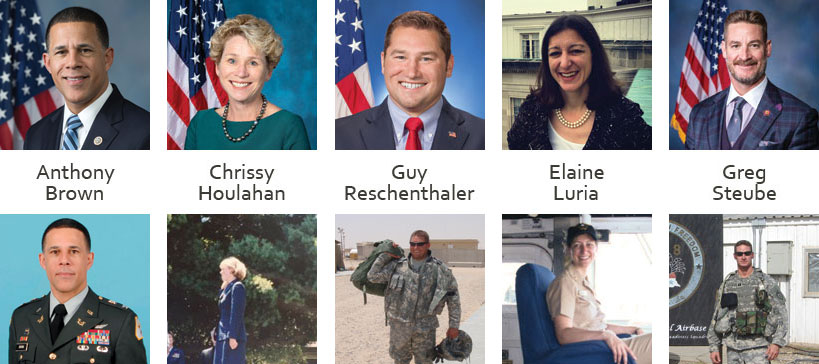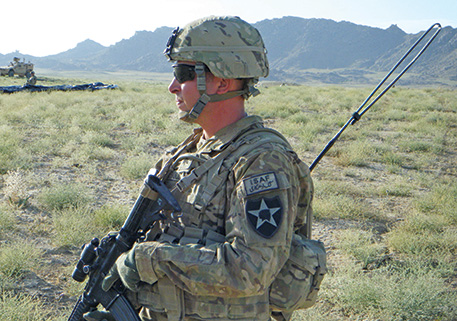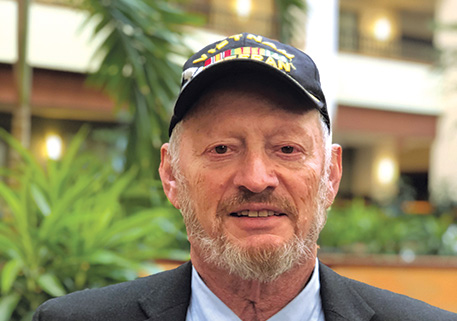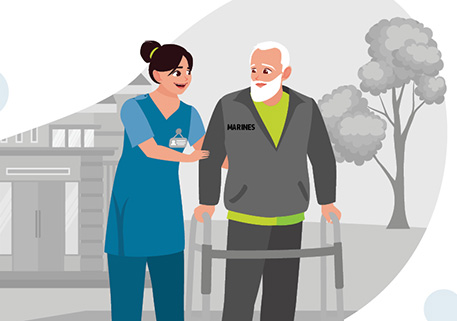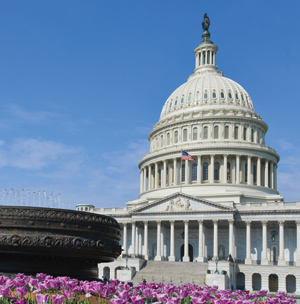 New generation elected to lead at critical time
New generation elected to lead at critical time
On Jan. 3, 2019, the 116th Congress was sworn into office. The most diverse Congress in U.S. history includes 96 veterans, among them 19 first-term lawmakers, 48 post-9/11 veterans and seven women, a historic record. While the overall count of veteran representation in Congress is declining—as it has for the last four decades—a new wave is bringing fresh perspectives. At a time when American politics seem polarizing and the population in uniform is disproportionately low, veterans in Congress have the opportunity to bridge the divide.
“As a veteran, we have experience in working in these stressful environments, working with people who have different backgrounds and different perspectives. That’s what we do in the military and that’s what we ought to be doing in Congress,” said Rep. Anthony Brown of Maryland, who served in the Army. “That’s where the veteran, I believe, can add and contribute to the work in Congress. It’s not just on national security issues or veterans issues; it’s on all the challenges we face when we’re in Congress, because veterans are problem-solvers.”
“When I was in Iraq, identifying as a Republican or a Democrat didn’t matter,” said Rep. Guy Reschenthaler of Pennsylvania, a Navy veteran. “We just needed to get the mission done. Different branches have their jokes and friendly rivalries too, but whether you’re in the Navy or the Army, a Republican or a Democrat, everyone understands that working together to accomplish the mission is the only priority.”
“The way that you’re conditioned in the military is to work as a team to get things done and to leave your differences at the door,” added fellow Pennsylvania Rep. Chrissy Houlahan, an Air Force veteran.
Transitioning from military service can be extremely challenging for veterans, sometimes because of the policies—or lack of policies—in place to support them and their families. Volunteering for office is another way veterans can continue their public service, bringing their experiences into the decision-making process.
“Being in the military is a career of public service, and serving in an elected office is a way of serving your community as well,” said Rep. Elaine Luria of Virginia, a Navy veteran who also serves on the House Veterans’ Affairs Committee. “I think a lot of veterans who ran this year and are now part of the new Congress on both sides of the aisle felt that this was a way to continue their service. They had served in uniform in the past, and that experience and that dedication to serving their country, they found a new forum to continue to be able to do that.”
“We need more veterans in Congress so we can get past the partisan bickering to come up with solutions that take on the problems facing our nation,” said Reschenthaler. “Veterans know how to reach across the aisle and remember that our country is our first priority. We have the tenacity to work hard and stay the course to accomplish our goals.”
“I strongly encourage veterans to get involved in the political process,” said Rep. Greg Steube of Florida, another member of the House Veterans’ Affairs Committee and an Army veteran. “You’re going to have guys and gals with experience who have served in a battle environment, a combat environment, that have a wide array of experiences in multiple different branches. They’ll typically be able to give good advice on the direction of our country.”
No matter their backgrounds, veterans in the 116th Congress share the same message to all veterans: You are not alone.
“I would encourage people to seek assistance, to seek camaraderie and friendship. I’ve been surprised at how remarkably caring people are when you reach out to them,” said Houlahan.
“I think it’s important for veterans to know that they’re not alone and that our nation supports them,” Reschenthaler said. “For me, it was important to realize that you don’t have to stop serving after returning home. There are so many other ways to continue serving in our communities across the nation.”
“Rely upon that network of people that you have in your community that are veterans that can give you that advice and support that you need to be successful,” said Steube.
“DAV uses the phrase ‘keep the promise,’ and part of our job as representatives is to keep that promise to veterans to help connect them with critical services that they need,” Luria added.
“Thanks in part to their military training and service, veterans are loyal, team-orientated employees with job-ready skills; tested leadership abilities; and a strong, mission-focused work ethic,” said National Adjutant Marc Burgess. “These attributes are encouraging to see in members of Congress, and I think the veterans now serving on Capitol Hill have the potential to create a more stable political climate.”
Serving our country, then and now
